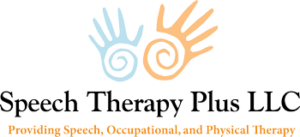Pediatric Pelvic Floor
Pediatric Pelvic Floor Dysfunction
Pediatric Pelvic Floor Dysfunction – Difficulty using the pelvic floor muscles correctly, which can lead to bladder or bowel problems such as leaking, urgency, or constipation.
Urinary Incontinence
Urinary Incontinence – Daytime or nighttime (bedwetting) accidents beyond the typical age for potty training, often due to muscle weakness, poor coordination, or bladder habits.
Constipation
Constipation – Infrequent, hard, or painful bowel movements that may be caused by pelvic floor muscle tightness or poor bowel habits.
Fecal Incontinence/Soiling
Fecal Incontinence/Soiling – Accidental leakage of stool after toilet training, which may be linked to chronic constipation, muscle weakness, or coordination difficulties.
Urinary Frequency & Urgency
Urinary Frequency & Urgency – Frequent urination or sudden, strong urges to go, sometimes with difficulty making it to the bathroom in time.
Painful Urination or Bowel Movements
Painful Urination or Bowel Movements – Discomfort or burning sensations when using the bathroom, often linked to pelvic floor tension or muscle spasms.
Bedwetting (Enuresis)
Bedwetting (Enuresis) – Persistent nighttime accidents in children who are otherwise healthy and have completed toilet training.
Post-Surgical Pelvic Floor Rehabilitation
Post-Surgical Pelvic Floor Rehabilitation – Gentle therapy to restore pelvic floor strength, coordination, and comfort after surgeries involving the abdomen, bladder, or rectum.
Pelvic Pain in Children
Pelvic Pain in Children – Ongoing lower abdominal or pelvic discomfort, which may be caused by muscle tension, nerve irritation, or underlying medical conditions.
Support for Children with Special Needs
Support for Children with Special Needs – Tailored pelvic floor therapy to help children with developmental delays, sensory challenges, or physical disabilities manage bladder and bowel function.
Speech Therapy Plus LLC accepts most insurances.
View Julia Chernova on Linkedin.

